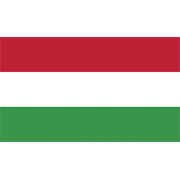Fiscal subject related
The structures themselves are provided in XSD format, which defines how XML files should be formed.
NAV imposes strict restrictions on naming SAF-T files submitted to tax authorities.
Unfortunately, one of the biggest unknowns of Hungarian SAF-T is how generated files will be submitted to NAV. It is expected that myNAV/NAV Online solutions will be adjusted to SAF-T, but no details are yet available.
Other news from Hungary
Hungarian HAV Published E-Cash Register Testing Details
 Hungary
Author: Tara Nedeljković
Hungary
Author: Tara Nedeljković
Hungary’s new e-cash register framework, based on the 8/2025 (III.31.) Ministry of Finance Regulation, introduces strict technical certification rules and NAV-supervised type testing to ensure secure digital receipt issuance and data transmission. Read more
Subscribe to get access to the latest news, documents, webinars and educations.
Already subscriber? Login


New Requirements for Publishing Visual and Audio Signals of E-Cash Registers in Hungary
 Hungary
Author: Tara Nedeljković
Hungary
Author: Tara Nedeljković
The National Tax and Customs Administration mandates specific visual (.gif) and audio (.wav) signals for e-cash registers for consistent customer feedback. Read more
Subscribe to get access to the latest news, documents, webinars and educations.
Already subscriber? Login


How VAT Rules Impact Free Product Campaigns in Hungary
 Hungary
Author: Tara Nedeljković
Hungary
Author: Tara Nedeljković
In Hungary, free product transfers can create significant VAT implications for retailers. While small-value gifts under HUF 5,000 allow VAT deductions, strict record-keeping is essential. Read more
Subscribe to get access to the latest news, documents, webinars and educations.
Already subscriber? Login


E-Receipts, Receipt Store, and Customer App in Hungary’s New E-Cash Register System
 Hungary
Author: Tara Nedeljković
Hungary
Author: Tara Nedeljković
Hungary's new e-cash register system introduces the e-receipt, an electronic receipt solely issued by e-cash registers, contrasting with the broader term electronic receipt. Read more
Subscribe to get access to the latest news, documents, webinars and educations.
Already subscriber? Login


Hungary: Recording Pensioner Food Vouchers in the Cash Register
 Hungary
Author: Ivana Picajkić
Hungary
Author: Ivana Picajkić
The pensioner food voucher, a paper-based instrument for purchasing cold food, must be recorded under “other means of payment” in online and e-cash registers, with businesses recommended to create a separate “pensioner food voucher” category for easier tracking and settlement The pensioner food voucher is a paper-based payment instrument that can be used to buy cold food. It has a unique serial n... Read more



From Online to e-Cash RegistersKOBAK Portal in Hungary
 Hungary
Author: Tara Nedeljković
Hungary
Author: Tara Nedeljković
Hungary’s KOBAK portal, operated by the Tax Authority (NAV), is the central online platform for managing both traditional online cash registers and the newly introduced e-cash registers, making its use mandatory for the latter. Read more
Subscribe to get access to the latest news, documents, webinars and educations.
Already subscriber? Login


Hungarian NAV Clarifies: Stricter Controls for Invoices and Data Reporting
 Hungary
Author: Tara Nedeljković
Hungary
Author: Tara Nedeljković
Hungary’s tax authority (NAV) will enforce stricter invoice data reporting rules from September 15, 2025, rejecting submissions with certain data errors instead of issuing warnings and imposing penalties up to one million forints for non-compliance. Read more
Subscribe to get access to the latest news, documents, webinars and educations.
Already subscriber? Login

